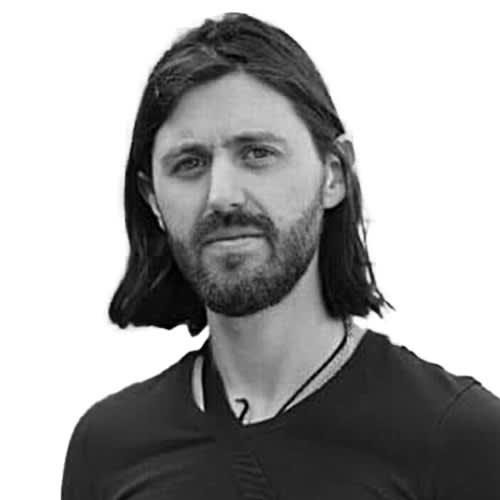KHARKIV, Ukraine—The spring flowers have begun to bloom in the center of this city’s Shevchenko City Gardens, but there is no one around to see them. Instead, the streets are empty and a deathly silence hangs over what was once a crowded city of 1.5 million people, punctuated only by the regular sounds of artillery fire.
On my first night in the city, I was jolted awake at 6 a.m. by the sound of shelling. I could hear explosions at least every minute for the next hour and a half. Several were close enough to make the windows of our flat vibrate. Later in the day, we could see men cleaning up rubble a few blocks down from where we had slept.
“Why would we want to go outside when every step is a lottery with our lives!” Nastya, a 23-year-old metro station attendant, told The Daily Beast. (Due to the tense security situation, many residents were uncomfortable giving last names.) Like most Kharkivites, she rarely ventures outside. “We originally divided the city into dangerous areas like the center and the east of the city near the Russian lines and the other areas we considered safer.” But last week, she says, she went to visit her family in a formerly untouched area of Kharkiv. “As soon as I got there, they started shelling it!” she said. “Now nowhere in the city is safe.”

Ruined buildings in Kharkiv.
Tom MutchA Ukrainian soldier who has been fighting on the frontlines told The Daily Beast that when the war started, “they came up to the gates expecting people to just run around in despair as soon as they entered the city. But they didn’t. Instead, they fought back.” The unprepared and ill-equipped Russian force was swiftly repelled from the city proper. So, the Russians gave up on trying to capture Kharkiv. Instead, they have been sitting back from dug-in positions as close as 10 miles from the city and subjecting it to one of the most ruthless bombardments of a European city since World War II. If they can’t have the city, they want to make life here so unbearable that it’s uninhabitable. Thousands of buildings have been wrecked and many residents of the city lack most essentials. As one resident put it, “it is a slow-motion Mariupol.”
The irony is that Kharkiv is an almost entirely Russian-speaking city that saw significant pro-Russian protests in reaction to the Maidan uprising eight years ago. No one knows this better than Father Vasili, the 50-year-old priest of the Church of the Holy Myrrh-Bearing Women in central Kharkiv. Clad in a black robe and with an ornate silver crucifix around his neck, he pointed his hand to show a large lump of shrapnel that had smashed into his church from a missile that had hit the other side of the street. He had just finished an Easter Sunday service that had been attended mostly by elderly parishioners who were unable or unwilling to leave their home city.

Father Vasili.
Alexander Chan“One-hundred and fifty meters from this church, there is the Russian Pushkin Drama Theatre. About 600 meters from here, there is the Kharkiv National University, which has a department of Russian language and literature. There are three to four streets close by named after the prominent Russian poets and writers: Pushkinskaya, Lermontovskaya, Dostoevskovo… they’ve come to ‘de-nazify’ what? Their people and their language!” he thundered to The Daily Beast.
Despite the close cultural and personal ties between Russia and eastern Ukraine, the Russians have inflicted terrible pain on people in this part of the country. “I served the first years of my service in a parish in the Borovskii district. Now there are Russian troops there. The life there hasn’t just frozen—it’s rolled several decades back. There is robbery, there is marauding, and there is rape there. I say it with great pain,” Father Vasili said. The sorrow in his voice turns to rage when he begins to describe the actions of the Orthodox patriarch in Moscow who recently gave Putin’s war his holy blessing: “We’re ashamed of the Russian Orthodox Church. We used to be part of it. And now we’re ashamed of it. We’re ashamed of the patriarch who keeps quiet. They preach war.”

A Ukrainian child standing next to wreckage from Russian shelling.
Alexander ChanThis senseless agony can be found all over the city. The Daily Beast visited several sites of recent shellings, including a market in the badly damaged Saltivka district that had been hit just two days prior. We could find no signs of troop movements or the debris that would be expected from military activity at those sites. Instead, there were the charred remains of clothes, shoes, and books that the various shops were selling.
Alexander Vasil, a 37-year-old who runs a cryptocurrency exchange during peacetime, was woken up at 3:30 a.m. by the blast. He showed The Daily Beast a photo he had captured with a sign saying “I Love Kharkiv” while the buildings behind it burned to the ground. He said that while no one had been at the market at the time, several people living in the vicinity were wounded by the explosion, and he had been told that at least one elderly resident had died of a heart attack brought on by shock. Vasil said he had decided to stay in the district to help those around him and assist the people living underground in the metro station.

“We haven’t had hot water or electricity since the start of the war,” he said “but we got used to it. We just wash with cold water instead.” His windows have long since been blown out, but like most people in the city, he said that the endless explosions and shelling had all blended into one, and people are no longer shocked by it. Commerce in the city has essentially ceased. A single café named Protagonist opens for a few hours in the afternoon and mostly serves soldiers and journalists.
But life in the city goes on and the remaining residents refuse to give in. “This is my home, why should we ever be forced to leave?” said Anna Subotina, a tattoo artist who has defiantly kept her studio open, despite the destruction visited on its surroundings. Her usual crowd of customers has been replaced by soldiers getting the insignia of their units or various military symbols inked on them before they go to the frontline. “Nothing is open, and they have nothing to spend their money on, so they spend it here instead.” The most popular tattoo by far these days was that of a rifle or AK-47.
For Father Vasili, the hope lies in Kharkiv’s youth. “What brings me joy the most is the young people, the volunteers,” he said. “A lot of them have cars and money, and everything, they could leave, but they chose to stay.”






